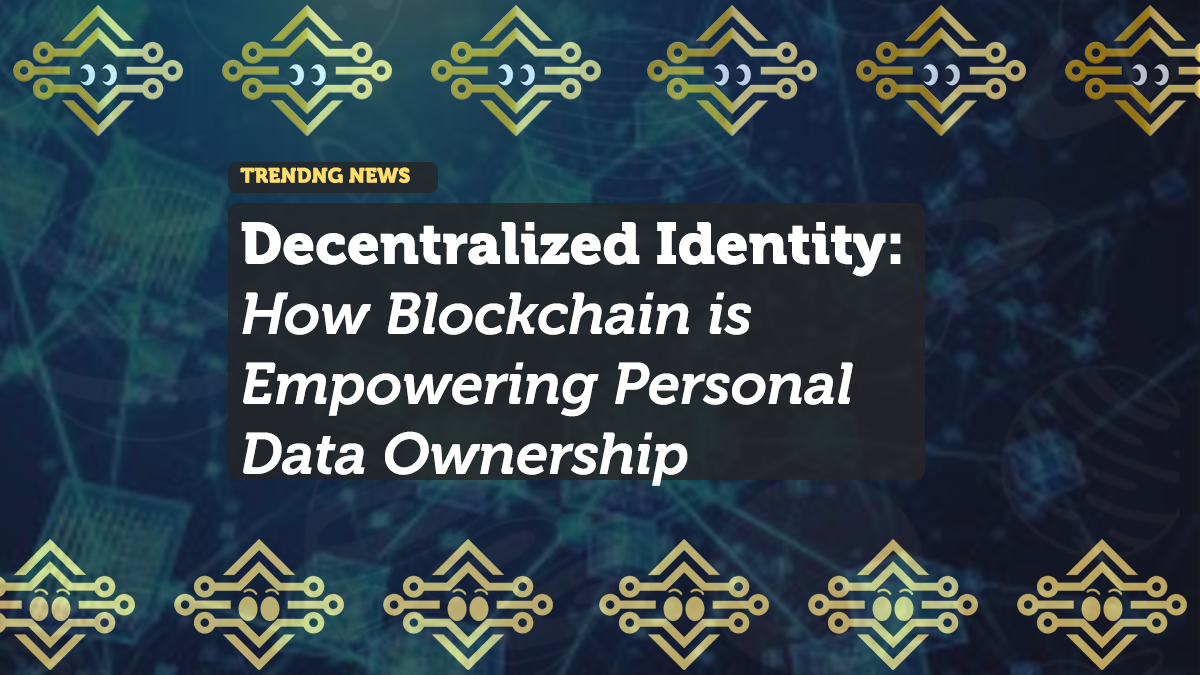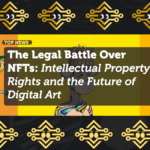
Decentralized Identity: How Blockchain is Empowering Personal Data Ownership
In today’s digital world, personal data is a valuable asset. However, control over this data often lies with large corporations rather than individuals. The decentralized identity movement, powered by blockchain technology, aims to shift this balance, giving people control over their personal information.
Understanding Decentralized Identity(DI)
DI uses blockchain to create secure, verifiable digital identities that individuals control. Unlike traditional systems, where a central authority manages identities, decentralized identity places control in the hands of the user. This shift offers numerous benefits, including enhanced privacy, security, and user autonomy.
Key Benefits of Decentralized Identity
Enhanced Privacy
DI allows users to share only the necessary information. For example, instead of providing a full name and birthdate to verify age, a user can share a simple “over 18” verification. This minimizes the amount of personal data shared, protecting user privacy.
Increased Security
Traditional identity systems are vulnerable to hacks and breaches. In contrast, decentralized identity systems use blockchain’s robust security features, making it difficult for malicious actors to compromise personal data. Moreover, blockchain’s immutable nature ensures that data, once recorded, cannot be altered.
User Autonomy
DI empowers users by giving them control over their data. They decide who can access their information and what specific data is shared. This control reduces the risk of data misuse by third parties.
Real-World Applications of Decentralized Identity
Several industries are beginning to adopt DIsolutions. Let’s explore some examples:
- Healthcare: Patients can maintain control over their medical records, deciding which providers can access their health information. This ensures privacy and can streamline the sharing of critical data between different healthcare providers.
- Finance: Financial institutions can use DI to streamline KYC (Know Your Customer) processes, enhancing security and reducing the risk of identity theft.
- Travel: DI can simplify the travel experience by securely storing and sharing travel documents like passports and visas.
Recent Developments and News
The rise of DI has seen several significant developments recently. For instance, Microsoft has been working on a decentralized identity system called ION, built on the Bitcoin blockchain. Similarly, governments are exploring decentralized identity to improve digital services and protect citizens’ data.
Challenges and Considerations
While DI offers numerous benefits, it also presents challenges. Firstly, widespread adoption requires significant changes to existing systems and infrastructure. Additionally, there are legal and regulatory considerations to address, as laws around data privacy and ownership vary globally.
Looking Ahead
The future ofDI is promising. As technology advances and adoption increases, we can expect more secure, private, and user-controlled digital identities. This shift will empower individuals and transform how personal data is managed and protected.
Final Thoughts
DI represents a significant step forward in personal data ownership. By leveraging blockchain technology, it offers enhanced privacy, increased security, and greater user autonomy. As the technology matures, decentralized identity has the potential to revolutionize various industries and fundamentally change how we manage personal data.
FAQs
What is DI?
DI uses blockchain technology to create secure, verifiable digital identities controlled by individuals rather than central authorities.
How does DI enhance privacy?
It allows users to share only the necessary information, minimizing the amount of personal data shared and protecting user privacy.
What are some real-world applications of DI?
Healthcare, finance, and travel industries are adopting DI solutions to improve security and user control over personal data.
What challenges does DI face?
Challenges include the need for changes to existing systems and infrastructure, as well as legal and regulatory considerations.
For more insights into the evolving world of decentralized identity and blockchain technology, stay tuned to our blog.























